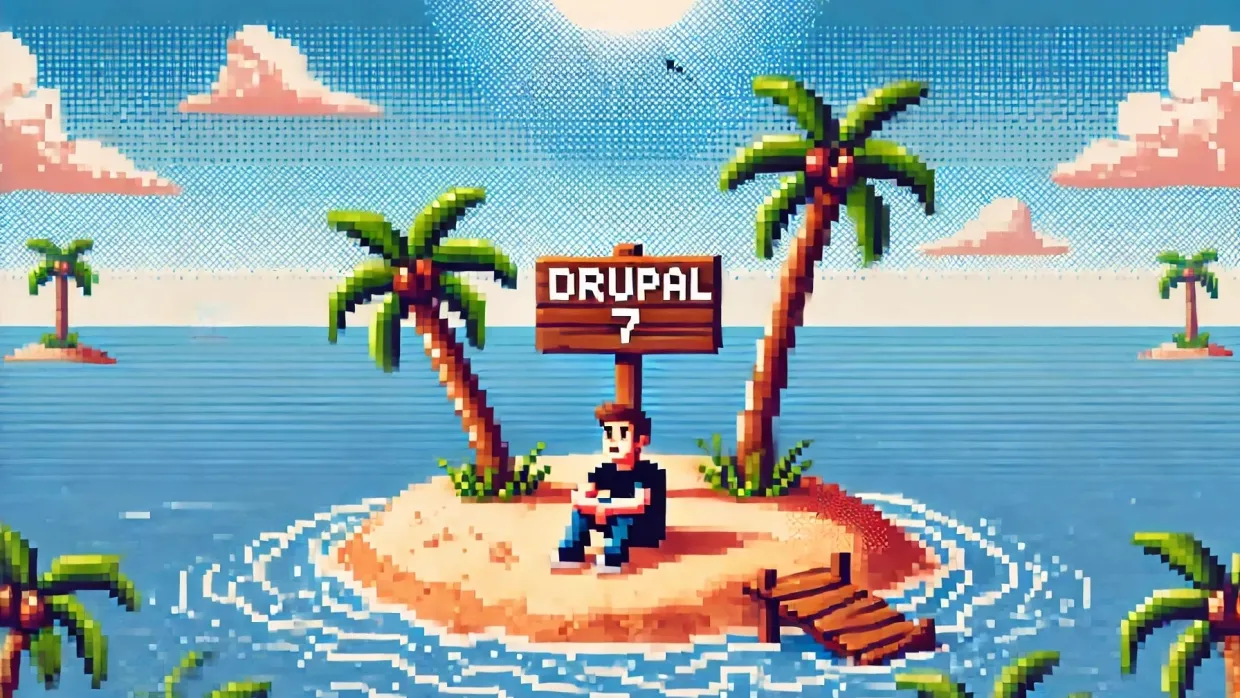Drupal
Why you shouldn't upgrade from Drupal 7

Yes, that title borders on click-bait, but fundamentally it is true. While it is possible to use the Drupal upgrade tools to migrate a site off of Drupal 7, there are reasons why almost 9 years after the release of Drupal 8 there are still thousands of sites on Drupal 7.
If it was easy to upgrade your way to a newer platform, you would have done it by now.
You read that right, it's been almost 9 years since Drupal 8 was released. It's been almost 14 years since Drupal 7 was released! When was your Drupal 7 site built? How has it evolved since it launched? How does your site serve you and your organization at this point? How much technical debt and cruft have you accumulated over the years?
To add to the complexity, we're no longer talking about upgrading to Drupal 8. With the release of Drupal 11 in July the upgrade path for a Drupal 7 site would now be Drupal 7 to Drupal 8, to Drupal 9, to Drupal 10, and then to Drupal 11. While the biggest jump in that chain is the leap to get off of Drupal 7, the added years and upgrades do still add to the complexity of this path. Now you not only need to worry about the upgrade path for your site from 7 to 8 - but what modules still exist today and are ready to go on 10 or 11?
What is the answer then?
Quite simply? Start over!
This has long been our belief for Drupal 7 sites. What did you think or feel when asked about the health of your site? Is your site serving your current needs? In most situations, the answer is likely no. Technology and the web have evolved significantly over the last 14 years. Your organization has likely evolved as well. What worked for you when your site launched likely needs to be rethought and brought into a modern context.
This has been true since Drupal 8 launched, and is even more true today. That's why our approach to a Drupal 7 "upgrade" is to step back, ask these questions and others. We then take what we learn to build a new, modern site that fits your organization's current needs.
If I should start over, why stay with Drupal?
That's a logical question, and one that some organizations may want to consider more closely than others. But for many organizations still on Drupal 7, moving to modern Drupal makes a ton of sense.
If your needs were simple enough, you likely would have already moved to a platform like Wordpress or gone ahead with a basic upgrade when Drupal 8 released. If you've held off on upgrading to this point - your organization's needs and your expectations for your site are likely fairly complex. Drupal has always excelled at handling complex data structures and integrations, that is even more true today with modern versions of Drupal.
Also, even without using the upgrade path, Drupal's Migrate framework is a powerful ally in getting your site moved to a modern platform. Leveraging the built in Migrate tools and the Drupal Migrate extensions is an easy way to map your existing content to your new Drupal site. You can easily extend the migrations to manipulate or massage your data as needed, cleaning up that extra cruft that's accumulated over the years.
By rebuilding your site fresh on modern Drupal, you can eliminate most of the headaches of the upgrade process. You don't need to worry as much about how you map modules and functionality across the major versions, or whether the modules you rely on in Drupal 7 even exist or are supported in Drupal 10 or 11. Instead, you can focus on building a clean platform with modern best practices. As your new site takes shape, you can look to the Migrate framework in Drupal Core to start to map your content from Drupal 7 into your new site structure.
Last, while it does take effort to migrate from Drupal 7 - Drupal 8 and the new release paradigm it brought has made future upgrades so much easier. With modern Drupal new features are continually released within a major version. As new features are developed, old features and APIs that become obsolete are marked for removal. What this means for your organization is moving from one major release of Drupal to the next is simply ensuring that all of the code you use - whether it's custom modules written for your site or contributed modules, is up-to-date. In practice that means you no longer need to treat major versions as a wreck-and-rebuild moment. Upgrading from Drupal 9 to 10, or 10 to 11 is much more straightforward, and much more affordable for organizations.
What's next?
Drupal 7 will officially be at End of Life on January 5th, 2025 - so if you haven't started planning your path forward yet, now is the best time! As you map out your route off of Drupal 7, I encourage you to keep the points above in mind. Make sure you partner with an organization that's ready to help you build out a platform for your long-term digital success.
Our team at Horizontal has followed this philosophy - leveraging our expertise across disciplines to deliver value and success to our clients, including aiding a large national Children's Hospital in their journey off of Drupal 7.
If your organization is ready to get off of the Drupal 7 island, reach out - we're excited to work with you to chart a future path and enable your digital transformation.